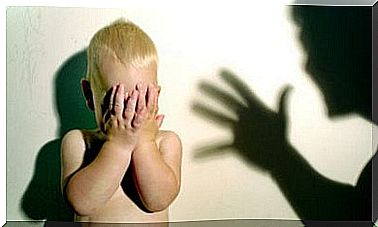Childhood Mythomania: How To Recognize And Treat It?

Have you noticed that your child is impulsively lying and suspects that it may be childhood mythomania? Do not worry! In this article you will learn about possible causes and how to correct this disorder. If treatment takes place early on, it is possible to avoid negative consequences in the future.
What is childhood mythomania?
Mythomania, also known as pseudologia fantastica or pathological lying, is a conduct disorder in which a person lies compulsively. A mythomaniac consciously chooses the lie to express his reality. In most cases, the person truly believes the lies he speaks.
It is not an illness, but a psychological disorder. In the case of children, it is not so simple to diagnose mitomania. They often make up stories or are fanciful. Therefore, symptoms may not be identified immediately.
What are the characteristics of children with childhood mythomania?
Children with this type of disorder tend to expand their reality. They lie about anything, make up stories, and get angry when someone doesn’t believe them. In general, lying differs from person to person. That is, the mythomaniac’s account changes depending on the listener.
These children tell unnecessary lies not just to save themselves from certain situations. For example, if a child breaks a vase, he can say that he didn’t break it. In contrast, a child suffering from childhood mythomania will lie without the aim of trying to get rid of the consequences of having broken the vase.
Don’t forget that most children tell a lie from time to time. This is normal. But if she prefers lying as a response to various situations, maybe she suffers from this type of disorder.
What is the treatment?
Generally, children who start to lie compulsively are going through a state of emotional fear or anxiety. They start by lying in response to some particular situation and then it becomes a habit.

Therefore, the most important thing is to find the reason why they lie so that you can help them overcome the disorder. If you discover that your child exhibits this type of behavior, it is ideal to see a professional. In addition, here are some useful tips:
- Record situations and times your child lies. Write down the time of day, the apparent cause, and your emotional state. Any detail will help you decipher what is the reason for this behavior. This information will also be able to guide the professional who will help overcome the disorder to determine a pattern of conduct.
- React calmly. Finding out that your child lies compulsively can be maddening. But you shouldn’t be mad at him. Instead, show your displeasure and show him that lies are not pleasant.
- Don’t punish your child when you repent and tell the truth. Show your happiness that he decided to tell the truth. Reward the truth and show that if the situation is reversed, he won’t be scolded.
- Help your child understand that lying will not save him from any situation. All your actions have consequences, and sooner or later your child will have to assume them. Show support for him to take responsibility for his actions without receiving punishment for doing so.
Short and long term consequences
Short term
A child’s constant lies make the family environment tense and permanently suspicious. It is necessary to avoid questioning everything the child says because even if he tells the truth he will feel judged. That way, she won’t see any difference between being honest and being a liar.

The social relationships of a child who lies compulsively fall apart as his peers discover the lies. She will start to feel excluded, her self-esteem will decrease and she will start to lie more to cover up this situation.
Long term
If childhood mythomania is not corrected, the child will turn into an adult who lies for no reason. She will take lying as a way of life. The person will lie to gain the sympathy of others and distort the facts into an exaggerated version of the story.
Mythomaniacs end up believing their own lies and have a hard time adapting to the real world. That’s why most people aren’t satisfied with their work, their friendships, and their family.
You can prevent this situation from continuing by trying to resolve the causes of this disorder in your child. Pay attention to his behavior and don’t hesitate to get involved and try to help him when the need arises.









